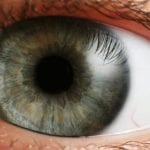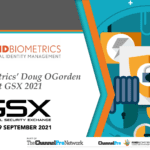
A team of researchers from Boston University (BU) are studying bacteria in an effort to develop advanced biosensors that operate around the clock to monitor all of the indicators of physiological health.
BU biomedical engineer and team leader James Galagan says the team was inspired by continuous glucose monitors (CGM), commercially successful biometric devices that track an individual’s glucose levels throughout the course of a day.
CGM’s use a tiny sensor wire inserted just under the skin to measure glucose levels in the interstitial fluids of the wearer. The sensor is connected to a small transmitter that sends continuous, real-time data to a receiver for analysis.
The CGM’s sensor uses a protein obtained from a microbe that senses glucose, and it is this that Galagan’s team hopes to replicate for any number of other proteins that can detect and measure a vast array physiological metrics.
“There are potentially millions of similar proteins,” said Galagan. “They can sense just about anything that affects our health. A primary reason we don’t have more sensors like the glucose sensor is that the proteins needed to make those sensors haven’t been identified.”
“Up to now, wearable technologies have focused primarily on macro [indicators] of health, such as heart rate, blood pressure, etc.,” says Kenneth Lutchen, dean of BU’s College of Engineering. “But we desperately need methods to predict disease emergence well before they create dangerous changes in such measures,” he added.
Galagan’s team has so far been able to identify a bacteria-derived sensor for the detection of progesterone — a female hormone critical to reproduction — as well as develop the technology to translate the sensor’s readings in into an optical output, effectively creating the first real-time optical and reversible progesterone sensor.
The sensor was able — in a test using artificial urine — to detect progesterone with an accuracy sufficient for clinical use, suggesting that it could be suitable for home use as a replacement for lab-based tests that are required during the in vitro fertilization process.
Speaking of the takeaway from these results, Galagan says that this is a “first proof of principle that we could take an organism, identify a new sensing protein, isolate this protein from the bacterium, and engineer it into a sensor device that is applicable to point-of-care use. As far as we know, this has never been done before.”
Galagan says the challenge now is to use technology being developed around the world and apply it to create applications for these sensors.
“This is really just the tip of the iceberg,” says Galagan. “We are now positioned to mine the full diversity of microbes to engineer sensors for a wide array of health, biotechnological, and consumer applications [and] we hope that one day these sensors will be available on the shelves next to the continuous glucose monitor,” he added.
Source: The Brink
–
April 2, 2020 – by Tony Bitzionis








Follow Us